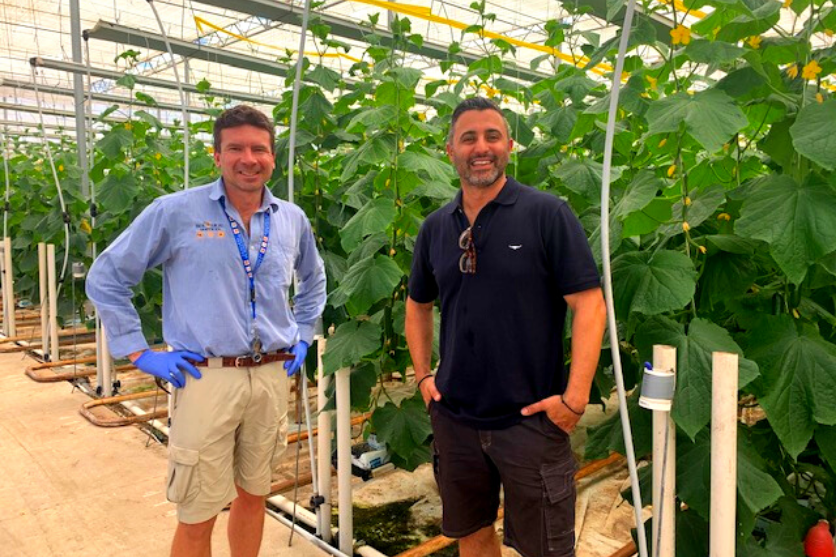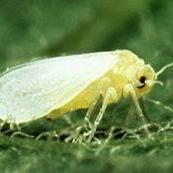AusVeg features our Director, Lachlan Chilman, in their latest industry feature
Tuesday, December 1, 2020
Biological Services' Director, Lachlan Chilman, was recently interviewed for a story on the AusVeg website. We have reproduced the original story with permission.
Today, we’re speaking to Lachlan Chilman from Biological Services. Lachlan, thanks for taking the time to chat!
Firstly, can you please give us a brief overview of Biological Services and its work?
Our ultimate goal is to help growers achieve the best yields they can by using a range of Integrated Pest Management (IPM) methods. Where there is a biocontrol option – either natural or introduced that is cost-effective – we deliver these. The aim is to reduce the reliance on regular pesticide applications that can lead to resistance of pesticide groups.
Biological Services produces over 20 types of biocontrol products that can be used in many horticultural crops. To back up the products, we have 11 experienced consultants based throughout Australia visiting growers and providing accurate pest/predator monitoring recordings. This provides the best available technical support to enable their IPM programs to have the best chance of succeeding.
You’re the Managing Director. What does this role involve?
It’s a role that is changing and evolving over time. Biological Services has two insectaries: one in South Australia that James Altmann runs (James and I are joint Managing Directors).
I oversee the insectary in Muchea, Western Australia. Here, I make sure the cultures are performing well and am also involved in our R&D projects. I work closely with our IPM district field managers and consultants around Australia.
Spending time in the field is very rewarding when the whole package works – reducing growers’ chemical use and improving their yields. This is especially so if they had reached a control issue with resistance to pesticides.
We also have a large administration team that need assistance with coordinating orders, organising logistics and ensuring all the compliance to run a business is up to date. This is the work I least enjoy but it is very important, or the business will not run properly. I quite often still find myself replying to emails late into the nights. Prior to the COVID-19 pandemic, it was quite common for me to be traveling every second week throughout Australia to visit our consultants and growers.
Where do you get your horticulture knowledge from? What sort of grower interaction do you have as a result of your role?
We are in an extremely lucky position that we have been given access to many horticultural farms around Australia and overseas. This has allowed us to get first-hand experience of the latest innovation in the horticulture industry. Not only have we seen new technologies, but we are also very lucky to discuss management decisions on a daily level with key growers and managers – we have built a relationship with many industry leaders over the past 20 years or more.
On an interaction level, this could be in the form of explaining pest/beneficial levels on farms; working out the right recommendations that suit the situation at that time of the season; and developing an IPM program before the season starts.

How have IPM practices changed in recent years, and what do you think has contributed to these changes?
Twenty years ago, we could not have dreamed about the changes that we see in IPM programs now. Biocontrols used to be an afterthought if the pesticides didn’t work; now they are the backbone of an IPM program in many crops. We develop a plan before the season starts and the growers know exactly when and what biocontrols they are going to release.
The increase in IPM adoption in overseas countries (particularly those in Europe) has occurred by governments enforcing growers to reduce chemical use on produce, but this has not occurred at the same levels in Australia.
The main contributing factor for changing to IPM in Australia has been pesticide resistance; withdrawal of toxic products; and a reduced amount of new pesticide chemistry being released to growers.
Nowadays – when a grower who has only used chemicals and explains they cannot control their pests anymore – we are very confident that changing to an IPM program will improve their control, yield and quality. This may take some time, especially if toxic chemicals are residually locked up in the soil, plant material and growing structures. Some of the newer chemicals are softer on beneficials or only target a certain group of pests, rather than being broad spectrum. This has also helped IPM programs to continue even when some chemical treatments are required.
Twenty years ago, a residually toxic chemical application could have ended the IPM program overnight. The range of biocontrol products that Biological Services produce has greatly increased to over 20 – and there are more on the way. This has enabled a much wider range of pests to be controlled.
What do you find most rewarding about your current role and working in the horticulture industry?
James and I take the most reward from developing successful IPM programs in a horticulture industry that finds itself with major pest issues or chemical resistance.
Being able to help growers manage their pests better with beneficials rather than a reliance on chemicals, while maintaining or improving yields and quality, gives a real sense of satisfaction. Our whole team believes in what we do, while helping the environment.
It’s quite common to hear growers say, “I used to spend 20 hours a week spraying, and now I have so much more time available for other tasks.” The change in an area like Virginia, South Australia, is quite amazing. We started working there over 10 years ago, and saw complete crops destroyed by virus before fruit could be picked. Now, we can achieve complete control of western flower thrips using beneficials – this is extremely rewarding.
We worked closely with the growers from the start when they were very worried, and invested a huge amount of time, R&D, free biocontrols and training key IPM consultants. To now to see the success of the programs is a reward, and this is what we strive to do. Our aim is to develop these programs with Biological Services being at the forefront of innovation.
What projects are you working on at the moment?
A large focus of ours is to help growers control diamondback moth in brassicas.
Presently, there are developing cases of resistance to group 28 pesticides. Biological Services has massed reared the parasitic wasp, Diadegma, that controls the younger larvae of the pest.
We have already undertaken extensive releases in areas such as Werribee in Victoria, Lockyer Valley in Queensland and across Tasmania, with some really good results. Like most areas that have used pesticides extensively for many decades, the soils will take some time for the pesticide residuals to break down before the ultimate success of these programs will be seen.
We have even been able to gain control with some organic farms in the Lockyer Valley. We haven’t worked in Queensland that often, but there is great potential in areas like Bundaberg and Bowen. We believe these areas could have really effective IPM programs established in the near future.
And lastly, how can growers get in touch or keep up to date with Biological Service’s activities?
Growers are most welcome to contact us and be placed on our newsletter service. If any grower would like to contact our office, please call 08 8584 6977 or email [email protected] to find out more.


_w256_h192/Biological%20Services%20370%20x%20260%20BS%20Web%20image%20(2)_12011121.png)


